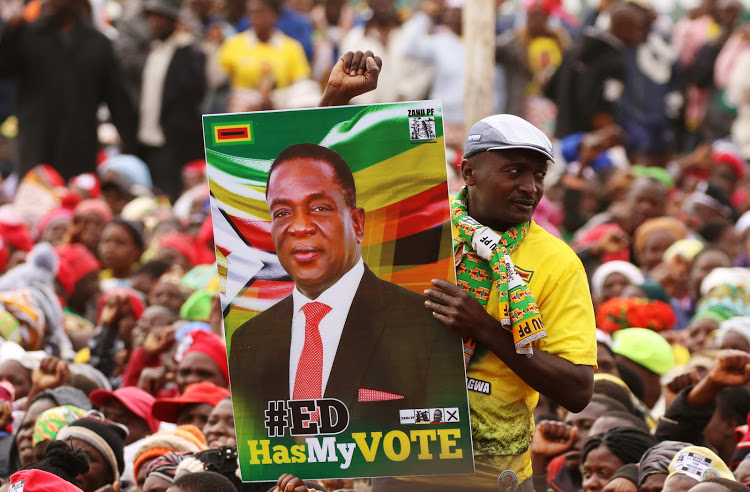By Elijah Chihota
The just ended ZANU PF 18th National People’s Conference which was held at Goromonzi High School in Mashonaland East Province has proved that the Party really means business and is committed to the turnaround of the country’s economy. Some armchair critics and misguided elements thought that the gathering was all about eating and gallivanting; no, that was not the case, but the gathering was to chart the way forward for the nation and growing the economy.
The ZANU PF annual conference was running under the theme “Modernise, Mechanise and Grow the Economy Towards Vision 2030”. On its deliberations and resolutions, the Party stayed close to its theme. Some of the resolutions touched on mining, industry, food security and irrigation development, among others as shown below.
Losing Presidential hopeful and leader of United Democratic Alliance (UDA), Dr Daniel Shumba who is a fierce Government critic could not help, but admire the ZANU PF conference and the resolutions it crafted. Posting on his Twitter handle @shumba327 said “The main agenda of the ZANU PF conference is to set the country on a robust path for accelerated economic growth”.
President Mnangagwa
In his closing remarks to the conference, President Emmerson Mnangagwa emphasised on promoting production which is being undertaken in all the sectors of the economy. The President said “Let us shift the population towards a mindset of productivity; we will support projects across every sector of the economy. The land must be productive and there is no room for cellphone farmers. The rains are pounding, let us all go back and diligently work the fields.”
Realising that sharing the available resources, promotion of empowerment of both women and the youth and support of Small to Medium Enterprises was of utmost importance; President Mnangagwa directed Government effort towards that.
Brand Ambassadors
More often than not, most Zimbabweans when they go abroad they tend to castigate their country in a bid to attract the sympathy of foreigners. In that regard, President Mnangagwa challenged Zimbabweans in the Diaspora to be good brand ambassadors of the country. Being brand ambassadors involves marketing the country to foreigners who would then develop interest to come and explore all investment opportunities in the country.
A good word of mouth by a citizen of a country goes a long way in attracting investors.
Mining
Zimbabwe is endowed with over sixty minerals and most of them are yet to be exploited. The most common mined mineral is gold whose deposits are found almost in each district across the country. The Party therefore resolved to establish gold centres across the country to make it easier for the artisanal miners to process their gold.
In 2018, these artisanal miners produced 20.4 tonnes out of 33.2 tonnes of gold produced by the whole country. A glimpse at these figures shows that artisanal miners with ordinary tools have managed to produce so much gold and if relevant equipment and gold centres are introduced into the enterprises, they will definitely produce more thereby earning the country the much needed foreign currency.
Industry
Most industries across the country are operating below capacity owing to shortages of foreign currency or obsolete equipment. Most of these industries needs retooling in order to bring on board more efficient equipment which helps to improve capacity utilisation while keeping operating costs as low as possible.
The country’s industry needs to be revamped and retooled and making sure that companies which had closed down are re-opened. In this regard delegates to the ZANU PF 18th National People’s Conference resolved that Cashel Valley in Chimanimani, Border Streams and Rusitu Jam Canners be re-opened. Zimbabwe has an abundance of fruits and these companies will never run out of raw materials.
In the same vein, delegates called for the scaling up of value addition and beneficiation of products from the country’s industries. Value addition and beneficiation increases the value of products. This would also attract partners and in the long term will result in knowledge transfer.
Food security
The country needs 1.8 million metric tonnes to feed both human beings and livestock each year. The yields that farmers were getting were fluctuating from one farming season to the next and in most cases were below the national annual requirement.
Realising how critical it is for a nation to have well fed citizens in the face of climate change and erratic rainfall, the conference resolved to shift into high gear and produce enough for the nation. The Party then proposed the rehabilitation of irrigation schemes which are dotted around the country. Rain fed agriculture has proved to be tricky and farmers to put up a meaning crop on the fields, they need to be irrigating and carry out their operations all year round.
The Party also resolved to promote the growing of small grains which are drought resistant and which can withstand long dry spells and still produce a meaningful yield.




